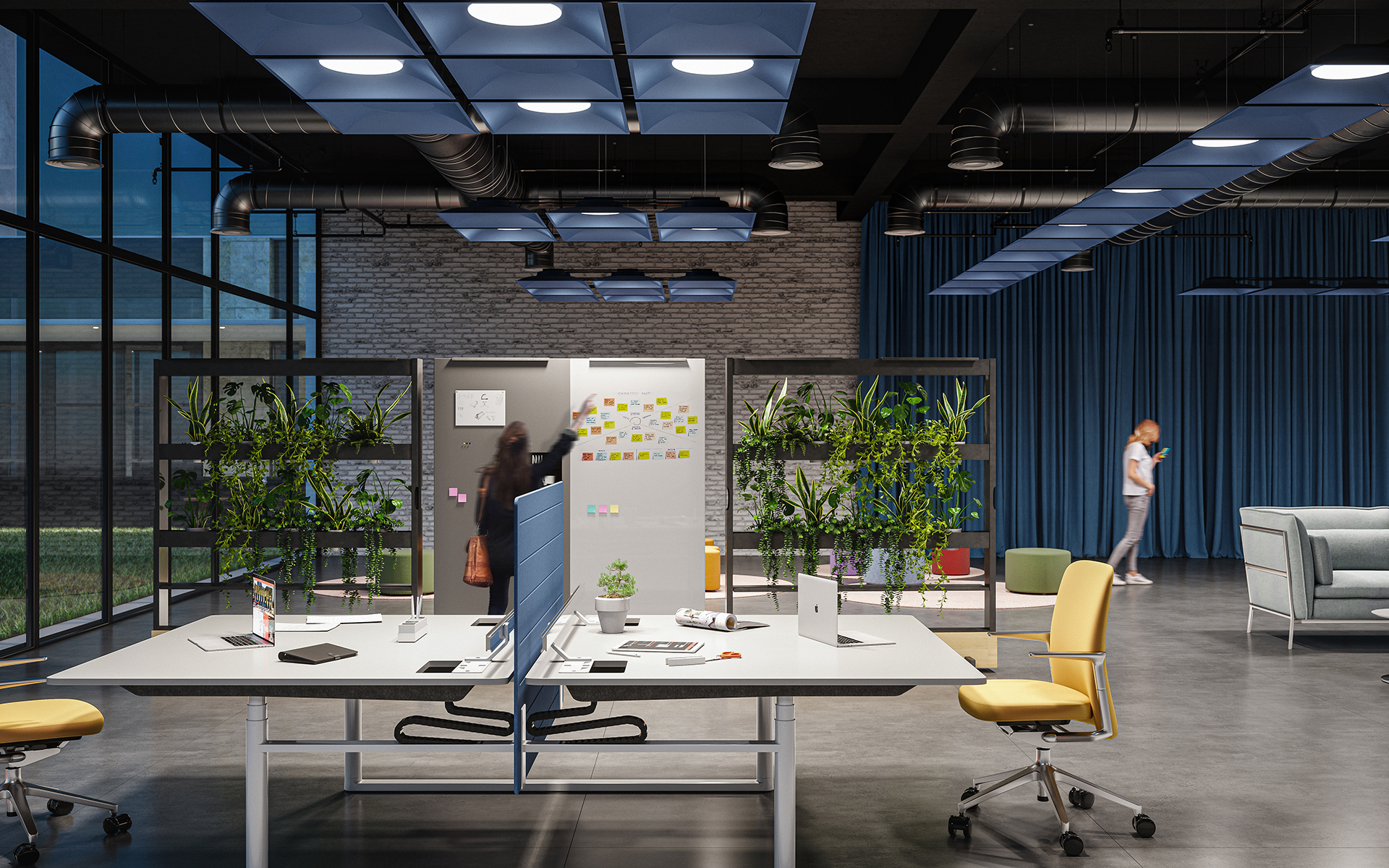
Flexible buildings - data instead of guesswork
Flexibility is the keyword for today's modern office buildings. At the same time, sustainability requirements from society and stakeholders are increasing. Property companies are heavily focused on both the health of office employees and reducing energy consumption. By relying on more reliable data, we can achieve many advantages. This is confirmed by the lighting company Fagerhult Group and the worktech company Sony Nimway, who have decided to explore opportunities together to contribute to more insightful and sustainable decisions.
Through the pandemic, we learned that conditions and behaviours can change rapidly. Similarly, the high energy prices last year created incentives to quickly review property energy consumption. Furthermore, demands from employees, suppliers, and customers for rapid adaptation to meet the climate crisis are growing. In fact, the building industry account for approximately 40 percent of the worlds carbon footprint and lighting stand for about 15 percent of the electricity consumption in a building. This means that buildings have a significant impact on the emission of greenhouse gases.
“There are great opportunities to design both creative and healthy environments while taking important steps towards sustainability. But it requires innovative thinking and new collaborations to reach the full potential. Therefore, we work closely together with Sony Nimway to leverage the advantages our two organisations can achieve together.“ says Johan Lembre, CTO Fagerhult Group.
In practical terms, the partnership involves utilizing the possibilities of a smart lighting infrastructure along with Sony Nimway's worktech system for navigation in the building, booking spaces, working desks and rooms. Together, this provides new opportunities to understand the usage of the building at a very granular level, which in turn can guide reduced energy consumption or changes in floor plans to better fit the needs. As these systems also begin to learn seasonal or weekly trends, we can anticipate future behaviours more accurately. Adjustments can thus be made to lighting based on both actual usage and natural light levels at specific times.
The office is an important place for people's health and well-being. By using the right lighting at the right time, we can create spaces for various purposes: creativity, confidential conversations, or collaboration. By easily finding colleagues and booking spaces, we reduce daily friction within an organization. But most importantly, Sony Nimway's booking system also helps employees plan their week together with colleagues by allowing them to see who is present at any given time. Again, a system that learns users' behaviours can anticipate which days or months will have high or low activity in the office. Through integration of the systems, you can also get assistance in booking a space with optimal daylight at a specific time. With simple means, the building can help users make good and healthy decisions.
"There are many opinions and guesses when it comes to the office environment. Depending on who establishes the facts, the solution can look different. We believe that by providing real-time data and predicting future behaviours, we can make a significant difference, both for well-being and for the planet,” says Lars-Gunnar Lundgren, Head of Nimway at Sony Nimway.